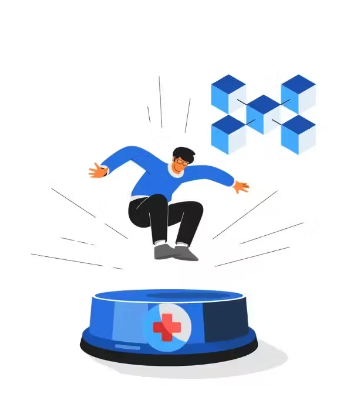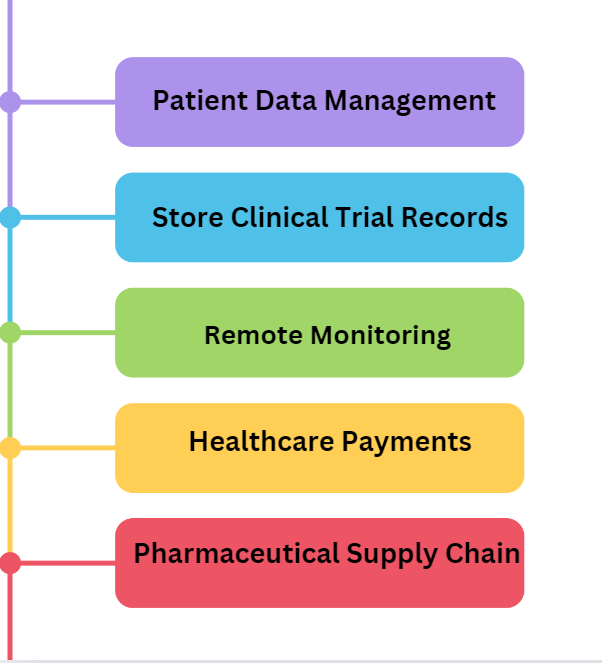
Is Blockchain For Healthcare?
Blockchain, the decentralized payment system that revolutionized the financial world, is now poised to revolutionize the healthcare industry. Numerous companies in the healthcare sector have already embraced this technology and are implementing it in their operations. According to a report by Statista, approximately 55 percent of healthcare applications will adopt blockchain for commercial use by 2025. But what are the reasons behind companies utilizing blockchain in healthcare?
The decentralized and cryptographic nature of blockchain enables the secure storage and transfer of patient medical records, making it significantly more challenging for unauthorized individuals to access sensitive data. Additionally, blockchain plays a crucial role in enhancing the efficiency of managing the medicine supply chain.
Leading healthcare companies worldwide have recognized the immense potential of blockchain in shaping the industry. They are already utilizing this technology to securely handle patient data, improve the management of medicine supply chains, and combat fraud. This blog will delve into the various use cases of blockchain, its benefits, and highlight the top 10 companies that are implementing blockchain in the healthcare sector. However, before we delve into those details, let’s first gain a clear understanding of what exactly blockchain technology entails.
What is Blockchain Technology?
Blockchain technology is a decentralized and immutable digital ledger system that records transactions across multiple computers, ensuring security and transparency. In a blockchain system, information is grouped into “blocks,” linked chronologically to form a “chain.” Every block in the chain contains a set of transactions linked to the previous block using cryptography, making it difficult to change data in any block without changing all the subsequent blocks.

1. Patient information management Blockchain technology has proven to be highly beneficial in managing patient information within the healthcare sector. By securely storing health records, social security numbers, and financial details using encryption systems, blockchain ensures the protection of sensitive data. The distributed ledger technology guarantees the safe transfer of medical records, preventing unauthorized access. Furthermore, the immutability feature of blockchain ensures that once data is recorded, it cannot be altered without network consensus. This maintains the accuracy and authenticity of patient information over time. Additionally, blockchain enables the seamless sharing of patient records among various healthcare providers while upholding data integrity.
2. Secure storage of clinical trial data In the realm of clinical research, blockchain technology plays a crucial role in securely storing vast amounts of data generated during clinical trials. The immutability feature safeguards the integrity of trial data, making it resistant to tampering or manipulation. Blockchain also tracks every change made to clinical trial records, ensuring transparency and accountability. Moreover, the consensus mechanism of blockchain mandates agreement from multiple parties for any modifications to clinical trial data. This process validates changes and certifies their authenticity, fostering trust and reliability in the research community.
3. Pharmaceutical supply chain management Fake drugs are a significant problem in the healthcare system, which is not only widespread but can be dangerous as well. Counterfeit drugs may contain toxic ingredients that can adversely affect a patient’s health. Sometimes, illegitimate drugs are repackaged after expiration using fake labels, causing severe health issues.
According to the National Crime Prevention Council, more than 10% of drugs in the global supply chain are counterfeit. In many countries, fake medicines account for up to 70% of the pharmaceuticals in the supply chain.
4. Telemedicine and remote monitoring Telemedicine offers convenient access to high-quality healthcare services for individuals living in remote regions. Nevertheless, the exchange of sensitive health information between patients and healthcare providers in telemedicine poses a potential vulnerability to cyber threats. By incorporating blockchain technology into the healthcare sector, this risk can be mitigated as blockchain offers a decentralized and highly secure platform for data exchange. Additionally, blockchain provides a reliable framework for seamless integration of wearable IoT devices, enabling efficient remote monitoring of patients’ progress.
5. Healthcare payments Hospitals, clinics, diagnostic centers, and health insurance companies process numerous transactions and claims on a day-to-day basis. This process involves sharing credit cards, bank account details, and other sensitive information. With a growing number of data breach incidents, securing payment details has become more critical than ever. Blockchain uses cryptography to protect data from unauthorized access. Each blockchain transaction is cryptographically linked to the previous one, forming a chain resistant to unauthorized access.
